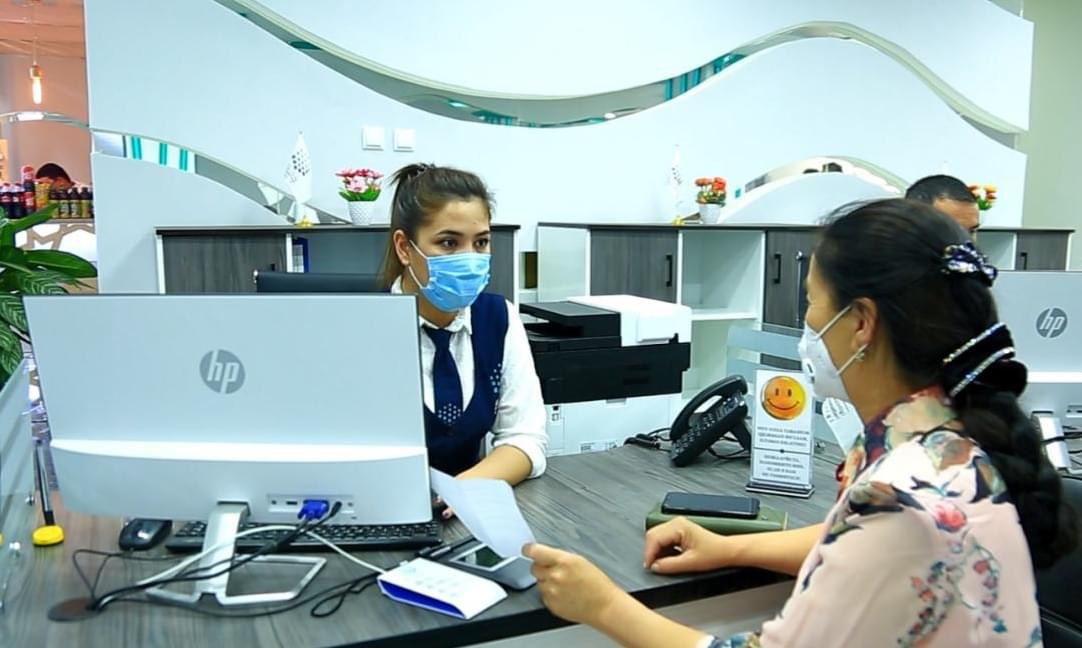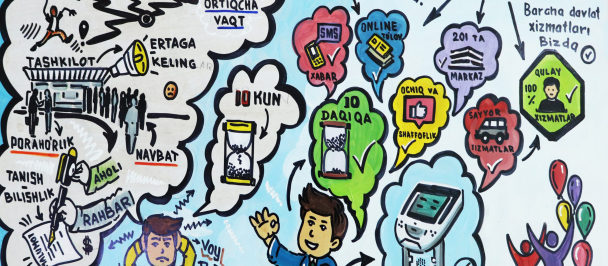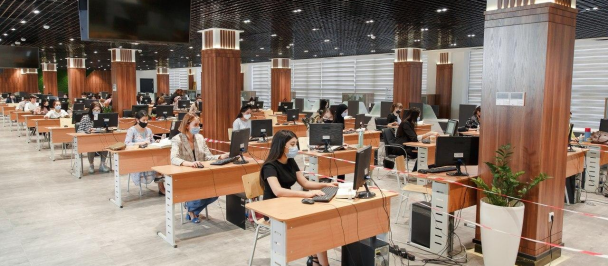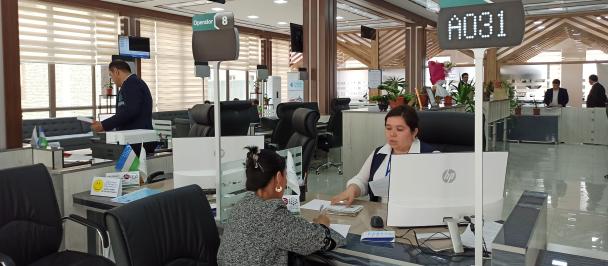Photos: UNDP Uzbekistan
During the COVID-19 lockdown, online public services in Uzbekistan became more essential than ever – providing a lifeline to people whose incomes and livelihoods had been put under strain.
In the last years, only a handful of agencies offered online public services, and because of the government approach it was agreed in January to increase the number of users of electronic public services by at least 5 times by the end of 2020, and to completely switch to electronic services by 2025. COVID-19 accelerated the process so that it pushed people to use more online services rather than offline.
The COVID-19 pandemic tested these services, determining whether they could meet public’s needs when other options, such as face-to-face engagement became unsafe and impractical.

Seeing opportunity in circumstances, the joint Ministry of Justice, Public Services Agency and UNDP project ‘Improved Public Service Delivery and Enhanced Governance in Rural Uzbekistan’, funded by EU prepared the analytical report ‘The Role and Significance of Public Services in Uzbekistan during the Lockdown caused by the COVID-19 Coronavirus Pandemic’. This report has been principally based on two surveys undertaken to attain a full picture of the national situation around the provision of public services.
The first survey sought information from public officials on the types of requests for services that the public had put forward during COVID-19, the assistance most in demand during lockdown and whether these could be accessed through the Single Portal for Interactive Public Services, what stops the provision of public assistance in a crisis, and how its delivery can be improved.
Meanwhile, the second survey covered 1,498 public service users throughout Uzbekistan, out of which 80% were living in urban areas. This second survey covered whether services needed during the COVID-19 pandemic were easily accessible online and which ones needed to be delivered straight into people’s homes. It also gathered information on what inconveniences were faced in using online public services, what help was needed in this regard, along with proposals for improving the quality of public service provision.
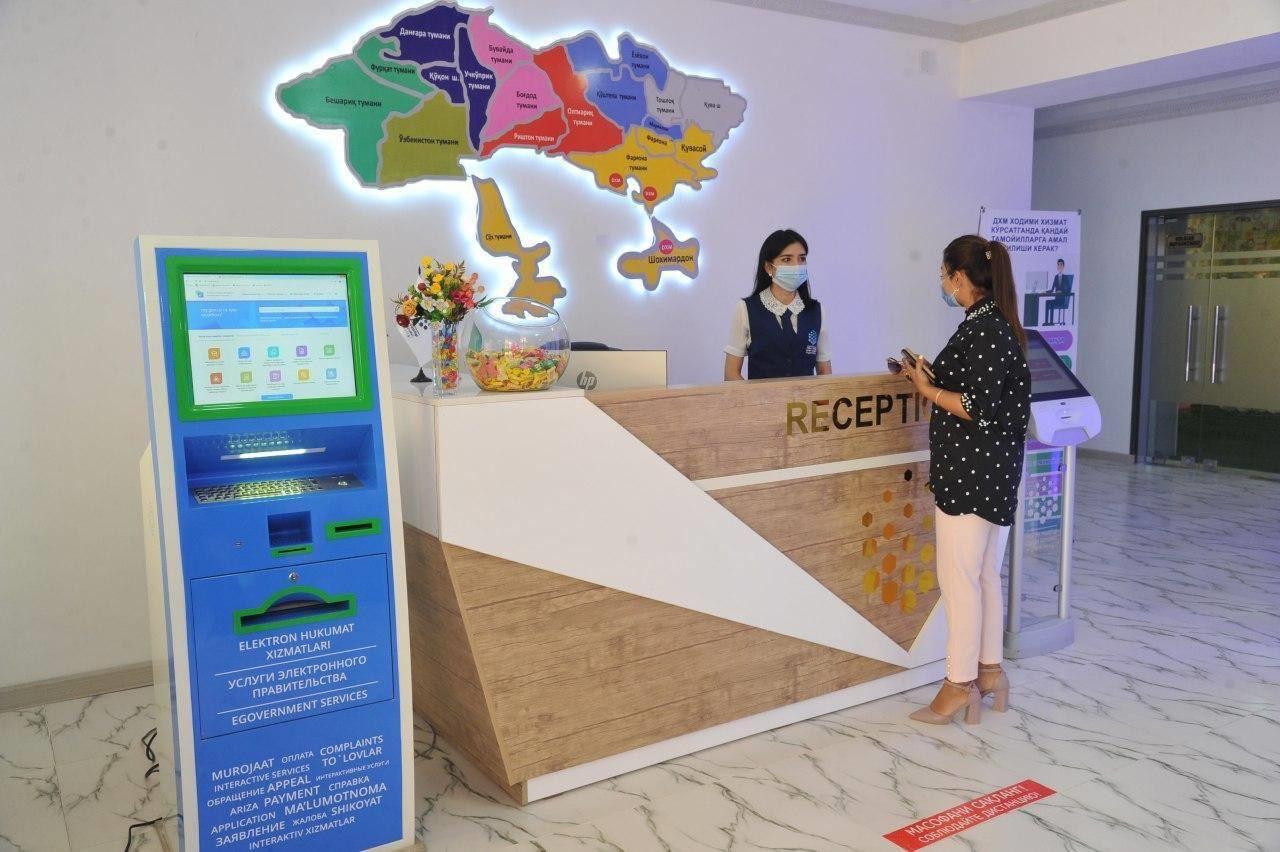
Availability of services
The second survey’s public respondents shared that they mostly needed help from public services in better understanding the rules and circumstances of the lockdown, along with attaining financial support and health assistance. 76.2% of the respondents went straight to public service centers for help, while 60.7% sought help through the my.gov.uz portal.
We found through the study that most citizens could use digital public services during the COVID-19 pandemic. However, for a significant minority who had slow internet or lacked any connection at all, who could only use mobile phones and other digital devices, or found difficulty in using the online portal, the inability to use digital public services was a worrying concern.
In addition, there are groups who face difficulty accessing either digital or in-person services, even though the latter was a risk for everyone during quarantine. For these groups which included people with children, aged people and people with disabilities, home-based services remained essential.
Lessons gleaned from this study are that access to public services could be enhanced through two major directions - improving citizen’s technology literacy and employing TV and Social Media channels to make people aware of online services, while setting structures in place to make sure those who are most vulnerable can keep receiving help at home.
Naturally, another goal has to be making sure that online services are as easy to use as possible.
Putting practicality first
Along with the need for online public services to be accessible, regular citizens and public servants alike have also emphasised that services must be clear and easy to use, with accessible language, and consistently and clearly marked.
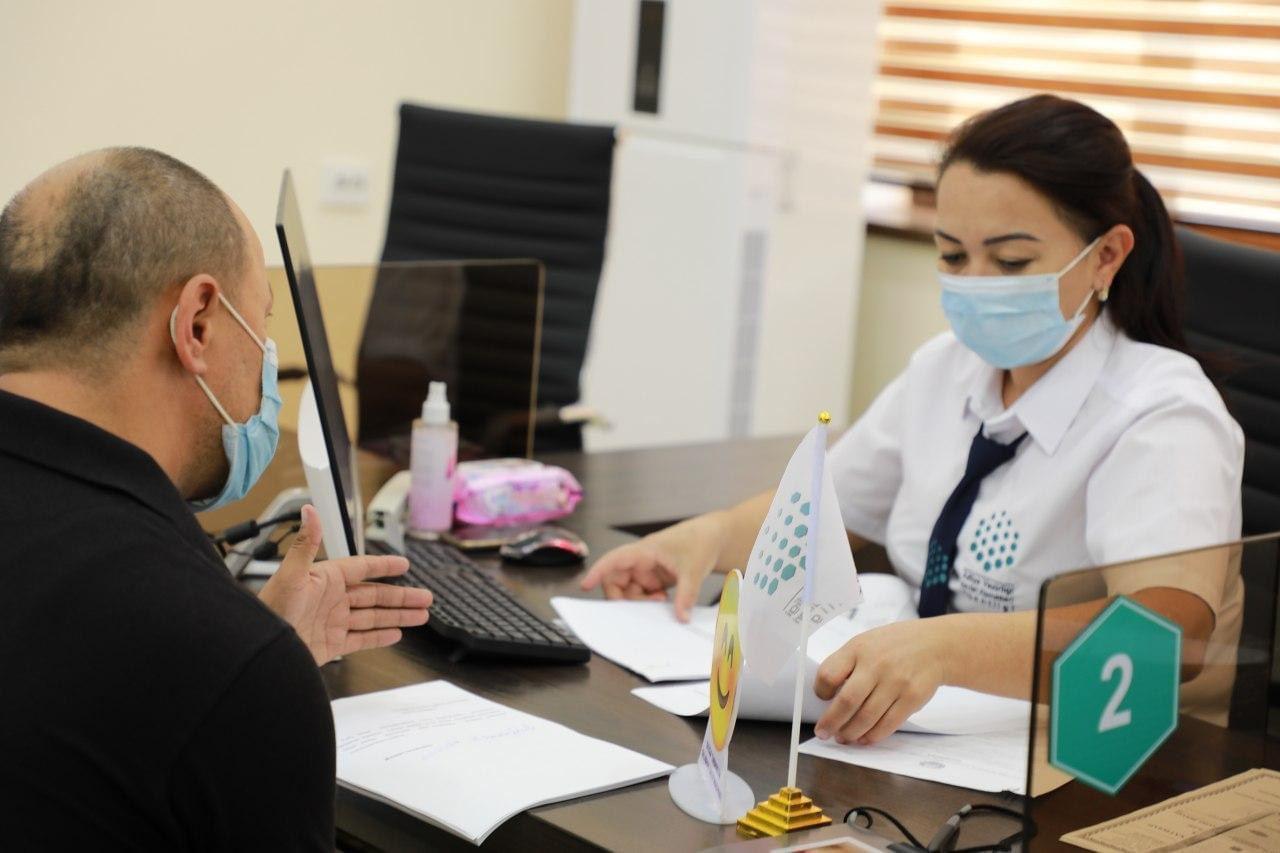
Online services need to be easy to find, and this requires written instructions to be clearly stated. One respondent from Tashkent said - “All content should be explained in comprehendible, simple and easy-to-understand language.” By extension, it has also been recommended that individual public services should be named the same way throughout the public service portal, and included on the same lists and locations on every language version of the site.
It is also recognized that online services should be made simpler to use. As just one example, while creating an Electronic Digital Signature (EDS) is essential for using many online services, it can be extremely tedious to attain. 772 or 51% of the public survey respondents said they would like to receive help in using online public services through a dedicated hotline, or through an Uzbek or Russian language online assistant. 603 or 40% of respondents said that an infographic explaining the website would also come in handy.
Meanwhile, from the collective standpoint of public service officials, it was suggested that the public could be encouraged to use the Single Portal for Interactive Public Services if:
- All the required services are available online, with home-based alternatives provided as necessary;
- Effective training is delivered to citizens who find it hardest to use online public services;
- Intensive work is carried out to inform citizens about the convenience of online services;
- Incentives or discounts are provided to citizens who access public services online.
Most importantly, it is recognized that citizens need adequate internet access for accessing these online services – without this the services are pointless. The online portal should be accessible not only through computers, but also through mobile phones and other similar devices.
Turning recommendations into actions
Drawing on both the results of the study and best international experience, two broad recommendations have been suggested for enhancing the effectiveness of online public services.
Firstly, the foundations of digital systems can be strengthened. There’s a need for a systemic vision for developing online services, sufficient legal and regulatory framework, national and regional directions for building e-government, commitment by public service officials to support digitalization, and strong interaction between state and private sectors.
Most important, however, is the availability and simplicity of services. Making online tools easier to use requires government departments to move from being indifferent public service providers, to organizations that actively work to support citizens. Awareness of services could be enhanced through content in periodicals, online web sources and social media, while greater focus could be placed on giving people simpler explanations of online material (informative videos, for example), and particularly on ensuring service access for vulnerable groups of population.
UN Development Programme and the Delegation of the European Union to Uzbekistan are bringing the recommendations developed through this study into action, specifically through the Joint ‘Improved Public Service Delivery and Enhanced Governance in Rural Uzbekistan’ project.

 Locations
Locations